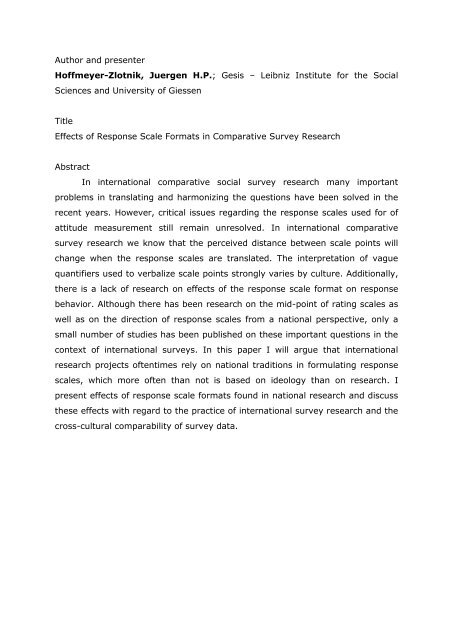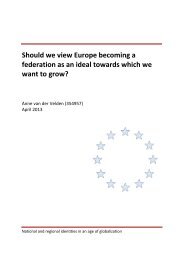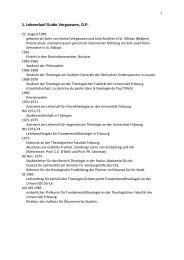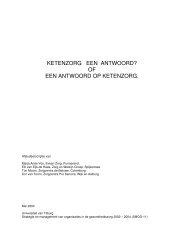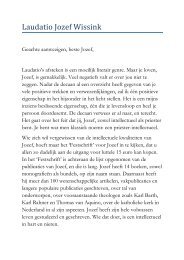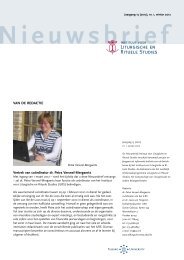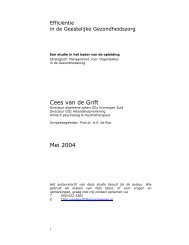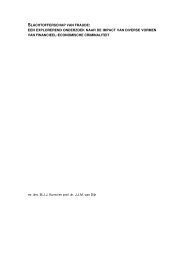Here - Tilburg University
Here - Tilburg University
Here - Tilburg University
Create successful ePaper yourself
Turn your PDF publications into a flip-book with our unique Google optimized e-Paper software.
Author and presenter<br />
Hoffmeyer-Zlotnik, Juergen H.P.; Gesis – Leibniz Institute for the Social<br />
Sciences and <strong>University</strong> of Giessen<br />
Title<br />
Effects of Response Scale Formats in Comparative Survey Research<br />
Abstract<br />
In international comparative social survey research many important<br />
problems in translating and harmonizing the questions have been solved in the<br />
recent years. However, critical issues regarding the response scales used for of<br />
attitude measurement still remain unresolved. In international comparative<br />
survey research we know that the perceived distance between scale points will<br />
change when the response scales are translated. The interpretation of vague<br />
quantifiers used to verbalize scale points strongly varies by culture. Additionally,<br />
there is a lack of research on effects of the response scale format on response<br />
behavior. Although there has been research on the mid-point of rating scales as<br />
well as on the direction of response scales from a national perspective, only a<br />
small number of studies has been published on these important questions in the<br />
context of international surveys. In this paper I will argue that international<br />
research projects oftentimes rely on national traditions in formulating response<br />
scales, which more often than not is based on ideology than on research. I<br />
present effects of response scale formats found in national research and discuss<br />
these effects with regard to the practice of international survey research and the<br />
cross-cultural comparability of survey data.


